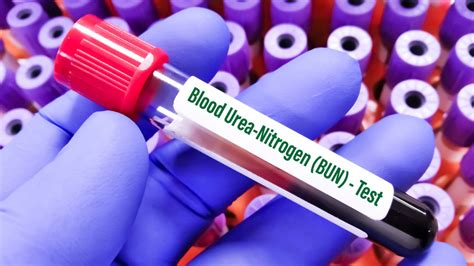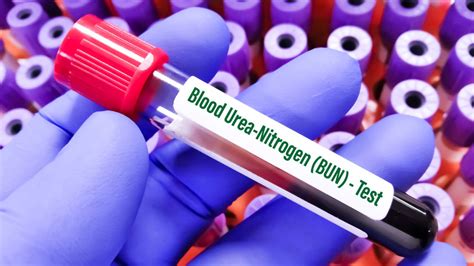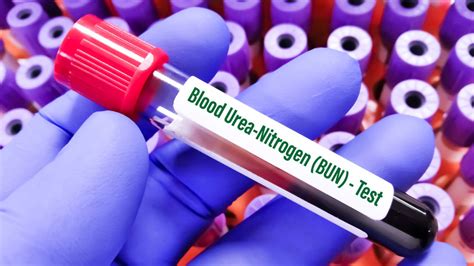Intro
Elevated nitrogen in blood levels can indicate kidney issues, triggering azotemia symptoms. Learn about causes, effects, and treatments for high nitrogen levels, including dialysis and dietary changes to manage urea and creatinine levels.
Elevated nitrogen in blood levels, also known as azotemia, is a medical condition characterized by an excessive amount of nitrogen waste products in the blood. These waste products, such as urea, creatinine, and other nitrogenous compounds, are normally filtered out by the kidneys and excreted in the urine. However, when the kidneys are not functioning properly, these waste products can build up in the blood, leading to a range of health problems. In this article, we will delve into the causes, symptoms, and consequences of elevated nitrogen in blood levels, as well as explore the various treatment options available.
The importance of maintaining healthy blood nitrogen levels cannot be overstated. Elevated nitrogen levels can lead to a range of complications, including kidney damage, heart disease, and even death. Moreover, azotemia can be a symptom of underlying kidney disease, which can progress to end-stage renal disease if left untreated. Therefore, it is essential to understand the risk factors and causes of elevated nitrogen in blood levels, as well as the various diagnostic tests and treatment options available.
Elevated nitrogen in blood levels can be caused by a range of factors, including kidney disease, dehydration, and certain medications. Kidney disease, such as chronic kidney disease or acute kidney injury, can impair the kidneys' ability to filter waste products from the blood. Dehydration, on the other hand, can reduce blood flow to the kidneys, leading to a buildup of nitrogen waste products. Certain medications, such as nonsteroidal anti-inflammatory drugs (NSAIDs) and certain antibiotics, can also increase nitrogen levels in the blood. Additionally, other factors, such as age, diabetes, and high blood pressure, can also contribute to elevated nitrogen levels.
Elevated Nitrogen in Blood Levels: Causes and Risk Factors

Pre-Renal Causes of Elevated Nitrogen in Blood Levels
Pre-renal causes of elevated nitrogen in blood levels include: * Dehydration: Reduced blood flow to the kidneys can lead to a buildup of nitrogen waste products. * Heart failure: Decreased cardiac output can reduce blood flow to the kidneys, leading to a buildup of nitrogen waste products. * Liver disease: Certain liver diseases, such as cirrhosis, can lead to a buildup of nitrogen waste products in the blood.Elevated Nitrogen in Blood Levels: Symptoms and Diagnosis

Diagnosing elevated nitrogen in blood levels typically involves a range of tests, including:
- Blood tests: To measure the levels of nitrogen waste products, such as urea and creatinine, in the blood.
- Urine tests: To measure the levels of nitrogen waste products in the urine and assess kidney function.
- Imaging tests: Such as ultrasound and CT scans, to visualize the kidneys and urinary tract.
Treatment Options for Elevated Nitrogen in Blood Levels
Treatment for elevated nitrogen in blood levels depends on the underlying cause and severity of the condition. Common treatment options include: * Medications: To manage underlying conditions, such as high blood pressure and diabetes. * Dialysis: To remove waste products from the blood when the kidneys are no longer able to function. * Kidney transplantation: To replace a damaged kidney with a healthy one. * Lifestyle changes: Such as following a healthy diet, staying hydrated, and avoiding certain medications.Elevated Nitrogen in Blood Levels: Complications and Prognosis

The prognosis for elevated nitrogen in blood levels depends on the underlying cause and severity of the condition. With prompt treatment and lifestyle changes, it is possible to manage the condition and prevent complications. However, in severe cases, elevated nitrogen in blood levels can be a sign of underlying kidney disease, which can progress to end-stage renal disease if left untreated.
Prevention and Management of Elevated Nitrogen in Blood Levels
Preventing and managing elevated nitrogen in blood levels involves a range of lifestyle changes and medical interventions. These include: * Following a healthy diet: To reduce the risk of kidney disease and manage underlying conditions. * Staying hydrated: To ensure adequate blood flow to the kidneys and prevent dehydration. * Avoiding certain medications: Such as NSAIDs and certain antibiotics, which can increase nitrogen levels in the blood. * Managing underlying conditions: Such as high blood pressure and diabetes, to reduce the risk of kidney disease.Elevated Nitrogen in Blood Levels: Future Directions and Research

Conclusion and Final Thoughts
In conclusion, elevated nitrogen in blood levels is a serious medical condition that requires prompt attention and treatment. By understanding the causes, symptoms, and complications of the condition, we can take steps to prevent and manage it. With ongoing research and advances in medical technology, it is possible to improve our understanding and treatment of elevated nitrogen in blood levels, and reduce the risk of complications and death.We invite you to share your thoughts and experiences with elevated nitrogen in blood levels in the comments section below. If you have any questions or concerns, please do not hesitate to reach out to us. Additionally, if you found this article informative and helpful, please consider sharing it with others who may benefit from this information.
What are the common causes of elevated nitrogen in blood levels?
+Elevated nitrogen in blood levels can be caused by a range of factors, including kidney disease, dehydration, and certain medications.
What are the symptoms of elevated nitrogen in blood levels?
+The symptoms of elevated nitrogen in blood levels can vary depending on the underlying cause and severity of the condition, but common symptoms include fatigue, shortness of breath, and swelling in the legs, ankles, and feet.
How is elevated nitrogen in blood levels diagnosed?
+Elevated nitrogen in blood levels is typically diagnosed through a range of tests, including blood tests, urine tests, and imaging tests.
